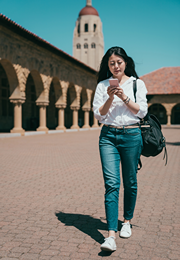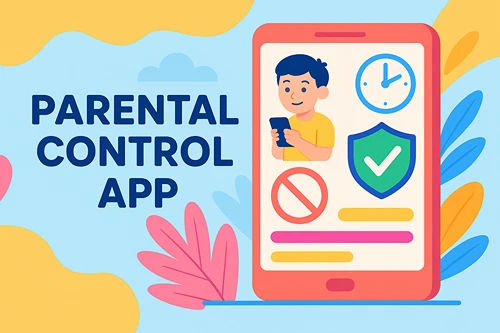7 Tips for Balancing Education and Wellness During Your Travels
Traveling is a great opportunity to relax from your daily routine and learn about new cultures. However, most students hesitate to travel, especially because they fear missing lessons and lagging in their curriculum. Even if they try to keep up, the stress impacts their mental and physical health.
So, we’ve got the best tips to ensure that there is no need to sacrifice your studies or health. Let’s get right into it!
1. Inform your school
One of the most important aspects of balancing education and wellness during travels is to stay connected with educators. Communicate your travel plans to your school teachers. Request that they share all necessary worksheets and assignments with you via email. This way, you can stay updated with school while enjoying a vacation.
2. Try to attend classes regularly
If your school has an online program, attend as many classes as possible. However, if that option isn’t available or your schedule doesn’t permit it, you may miss out on important lectures. So, it can be challenging to understand all concepts and keep up with your studies.
To avoid this, enroll in the best virtual schools where you can connect with world-class mentors for specific subjects and even extracurricular activities. They’ll also equip you with additional resources, references, and guidance. So, this will give you an additional edge over your peers!
3. Get the right accommodation
While booking rooms, choose places where you can rest well and study in peace. The accommodation must be in a quiet environment. If it’s in a noisy place, it must be soundproofed. This ensures you get quality sleep throughout your travels and have plenty of energy both for fun and studies.
Your accommodation must also offer you a strong internet connection. Thus, if you need to study and access online resources, there won’t be any trouble. Ask the front desk ahead of time about Wi-Fi availability and whether there are enough power outlets to use your devices.
4. Create a flexible study schedule
During travels, most students can’t find the time to study. After a long day of sightseeing and cultural experiences, you might feel too tired even to open your books. To tackle this, set realistic and achievable goals based on your itinerary. Identify why days will be jam-packed with activities and which days will have lighter schedules. Plan strict study sessions on the days with minimum activities.
Follow multiple short study sessions instead of doing it all at once in an uninterrupted session. You can also look up the best high schools online, where you can request guidance in lessons and modules from world-famous mentors according to your schedule.
You can study during flights and bus rides to destinations. If it’s difficult to take out your chunky books in the commute, get a digital copy and study on your device. You can also listen to educational podcasts and review notes while on the go.
5. Incorporate wellness practices
Owing to changes in environment and lifestyle, some people fall sick while traveling. It not only ruins your travel experience but also prevents you from studying. So, embrace wellness practices to avoid it, such as the following.
- Eat a balanced meal and stay mindful. While you want to try out exotic cuisine, make sure your meals contain enough vegetables, fruits, and protein.
- Stay active to be fit. Walk short distances while traveling. You can also participate in outdoor activities, including surfing and hiking. Practice yoga or use the hotel gym (if there’s any).
- Manage the stress of traveling and studying with mindfulness practices, including deep breathing, meditation, and journaling.
6. Set strict boundaries
A significant part of balancing education and health while enjoying your travels is all about setting boundaries. Set designated times for each activity to ensure you focus on everything equally. For instance, while studying, turn off all notifications on your devices.
When it’s time to sleep, don’t check social media. Otherwise, you’ll only get less time to rest. If it’s noisy during bedtime, use noise-canceling earplugs. While sightseeing, keep worries aside and live in the moment.
7. Prioritize rest and sleep
People often sacrifice sleep to maximize travel experiences. However, good sleep is necessary for optimal brain performance and mood. This, in turn, ensures you can focus on your studies. Follow a strict sleep routine by going to bed and waking up at a fixed time. Take short power naps if you feel tired during the day.
Conclusion
Balancing studies, wellness, and traveling may seem tricky. But with these strategies, thoughtful planning, and discipline, it’s possible. So, embrace them, and you will successfully achieve your educational goals while immersing yourself in a fulfilling travel experience.





